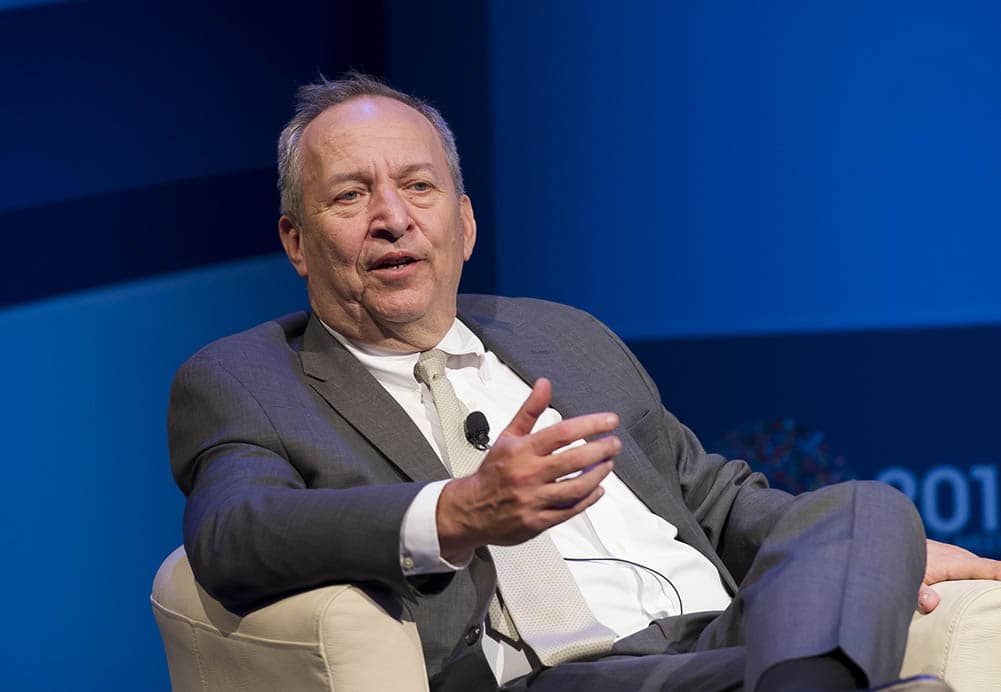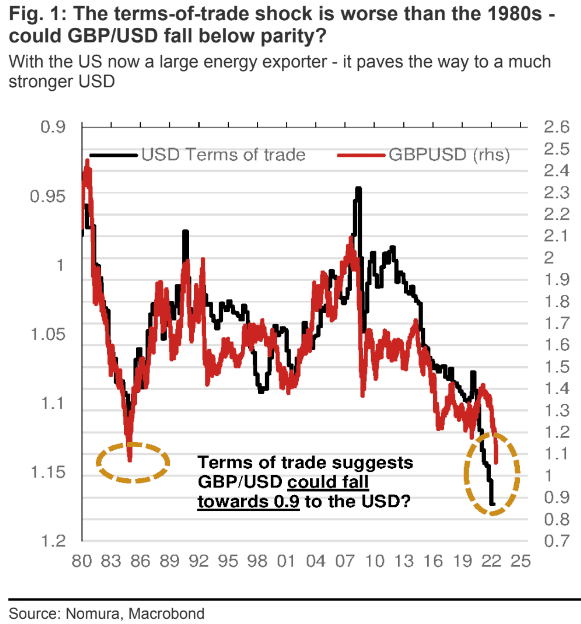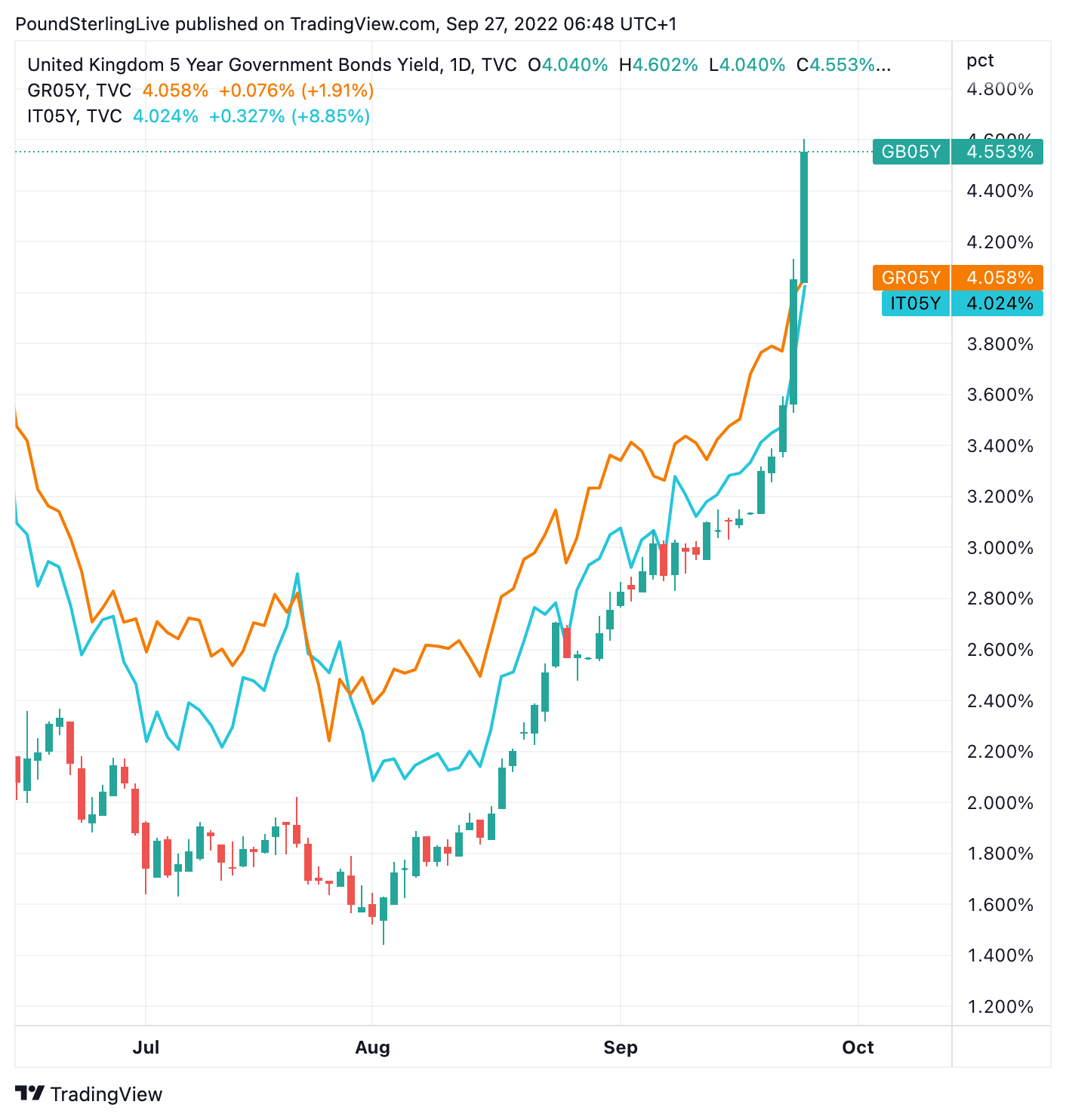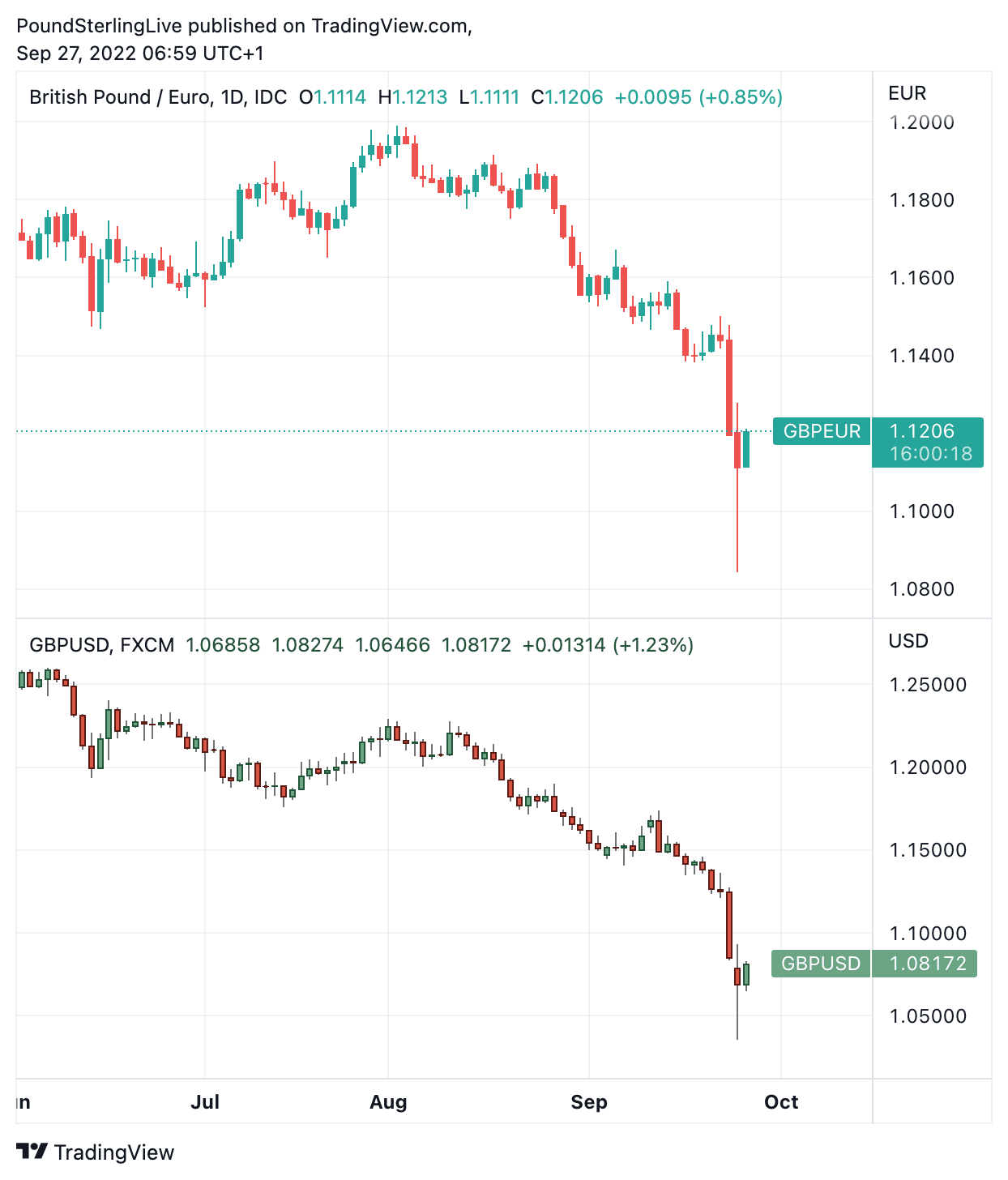Summers: Pound Sterling Going Below Parity against Euro and Dollar
- Written by: Gary Howes

File image of Lawrence Summers, image © IMF.
The British Pound is undergoing a major adjustment lower that will only end once it has fallen below parity, says a leading economist.
Lawrence Summers, former U.S. Secretary of the Treasury, former director of the U.S. National Economic Council and former Chief Economist for the World Bank, says the problems facing the Pound are now so dire he is surprised the International Monetary Fund has not made an announcement.
Responding to recent developments in UK debt and currency markets, Summers says:
"I was very pessimistic about the consequences of utterly irresponsible UK policy on Friday. But, I did not expect markets to get so bad so fast.
"A strong tendency for long rates to go up as the currency goes down is a hallmark of situations where credibility has been lost."
The yield on UK debt has soared to the extent it is now higher than that of Italy and Greece while the Pound has collapsed:
Above: Yields on UK five-year debt have now surged above those of Italy and Greece.
The Pound to Euro exchange rate had fallen as low as 1.0793 on Monday during a flash crash in the Asian trading session, before recovering to 1.1171 at the time of writing.
But it was the Pound to Dollar exchange rate that crashed to an all-time low at 1.0350 that sent shockwaves through currency markets. The pair did manage to recover to 1.0764 but sentiment is poor and expectations for further declines are elevated.
Summers sees further significant currency weakness ahead, "I cannot remember a G10 country with so much debt sustainability risk in its own currency."
He says the tendency for long term rates to go higher (i.e. 30 & 50 year bond yields) - as the currency goes down - happens most frequently in developing countries but Summers points out it also happened with Mitterrand in France before a U-turn, in the late Carter Administration before Volcker and with Lafontaine in Germany.
He says this is now playing out under Truss in the UK, following the announcement of a series of tax cuts and increases in public spending as the government seeks to protect households and businesses from rising energy costs.
Compare Currency Exchange Rates
Find out how much you could save on your international transfer
Estimated saving compared to high street banks:
£2,500.00
Free • No obligation • Takes 2 minutes
Summers says Chancellor Kwasi Kwarteng made a mistake over the weekend when saying further tax cuts were coming.
"The first step in regaining credibility is not saying incredible things. I was surprised when the new chancellor spoke over the weekend of the need for even more tax cuts," says Summers.
And there is ample criticism for the Bank of England.
"I cannot see how the BOE, knowing the government’s plans, decided to move so timidly," says Summers.
The Bank of England last week undershot expectations by raising interest rates only 50 basis points when markets were looking for 75bp.
On Monday the Bank sent out a statement - responding to financial market turmoil - saying they "would not hesitate" to take action.
This in itself is hesitation, and the markets reacted accordingly.
The Pound had rallied through the day as the effects of the Asian flash crash were unwound and on rumours there would be a response from the Bank of England.
Above: GBP/EUR (top) and GBP/USD (bottom). To stay on top of the market, set your FX rate alert here.
In the event, the do-nothing statement from Governor Andrew Bailey triggered fresh selling of the Pound.
"The suggestions that seem to have emanated from the Bank of England that there is something anti-inflationary about unbounded energy subsidies are bizarre. Subsidies affect whether energy is paid for directly or through taxes now and in the future, not its ultimate cost," says Summers.
The UK has a signifiant trade deficit as it imports more than it exports, creating a current account and Balance of Payments deficit, leaving its currency vulnerable during times of international financial crisis, as we are currently seeing.
Foreign investors typically fund the current account deficit by buying UK assets. By raising interest rates the Bank has the ability to make UK assets attractive to foreign investors, thereby supporting Sterling.
But with a Bank of England 'behind the curve', the currency is left to adjust lower.
"The magnitude of Britain’s trade current account deficit underscores the seriousness of its challenges. My guess is that pound will find its way below parity with both the dollar and euro," says Summers.
Forecasts for the Pound-Dollar to fall below parity were also made by analysts at investment bank Nomura on Monday.

And there is bad news for UK borrowers: "I would not be amazed if British short rates more than triple in the next two years and reach levels above 7 percent."
These rates are those which impact on mortgage lending, therefore when they go up the cost of a mortgage rises.
In response to the recent surge in bond yields mortgage lenders like Halifax, Virgin Money and Skipton Building Society have all announced they have pulled various mortgage products.
More will follow.
"I say this because US rates are now projected to approach 5 percent and Britain has much more serious inflation, is pursuing more aggressive fiscal expansion and has larger financing challenges," says Summers.
Furthermore, he argues the attractiveness of London as a major financial services centre will be compromised.
"A currency crisis in a reserve currency could well have global consequences. I am surprised that we have heard nothing from the IMF," says Summers.
GBP to USD Transfer Savings Calculator
How much are you sending from pounds to dollars?
Your potential USD savings on this GBP transfer:
$1,702
By using specialist providers vs high street banks






